Introduction
Elon Musk’s achievements and his reputation as a visionary entrepreneur
Many people consider Elon Musk to be one of the most prosperous and creative businessmen of our time. Tesla, SpaceX, Neuralink, and The Boring Company are just a few of the businesses he founded and serves as CEO of. Among Musk’s accomplishments include changing the electric vehicle market, facilitating access to space travel, and pushing the envelope of artificial intelligence and brain-machine interfaces.
Musk’s ability to recognise and address some of the most critical issues facing the globe has earned him a reputation as a visionary businessman. He is renowned for his long-term perspective and readiness to take significant risks in the pursuit of his objectives. For instance, his vision for the future of sustainable energy has influenced the creation of the Powerwall home battery system and the Tesla electric vehicle.
Elon Musk has a significant impact outside of business since he also works to develop science and advance education. Millions of dollars have been contributed by his charitable organisation, the Musk Foundation, to fund studies into alternative energy sources, space travel, and education.
A brief comparison with other tech CEOs, and the reasons why Musk appears to be smarter
Elon Musk stands out as a distinctive and progressive CEO when compared to other IT industry leaders. While other CEOs have had great success in their respective fields, Musk stands out for the way he approaches business and entrepreneurship. Here are a few explanations for why Musk seems smarter than other tech CEOs:
1. Long-term perspective: Musk stands apart from other CEOs who could prioritise short-term gains due to his emphasis on the long term and willingness to engage in ambitious, high-risk ventures.
2. Multidisciplinary approach: Musk’s experience in a variety of sectors, such as aerospace, energy, and transportation, enables him to approach his job from a distinctive angle.
3. Unconventional thinking: The creation of ground-breaking technologies has been made possible by Musk’s openness to question conventional wisdom and his unconventional approach to problem-solving.
4. Passion and Drive: Musk has motivated both his colleagues and admirers with his unwavering devotion to his aims and love for his profession.
5. Scientific curiosity: Musk has a keen interest in science and is aware of how it might impact society, which has motivated him to make significant investments in R&D.
Visionary Mindset
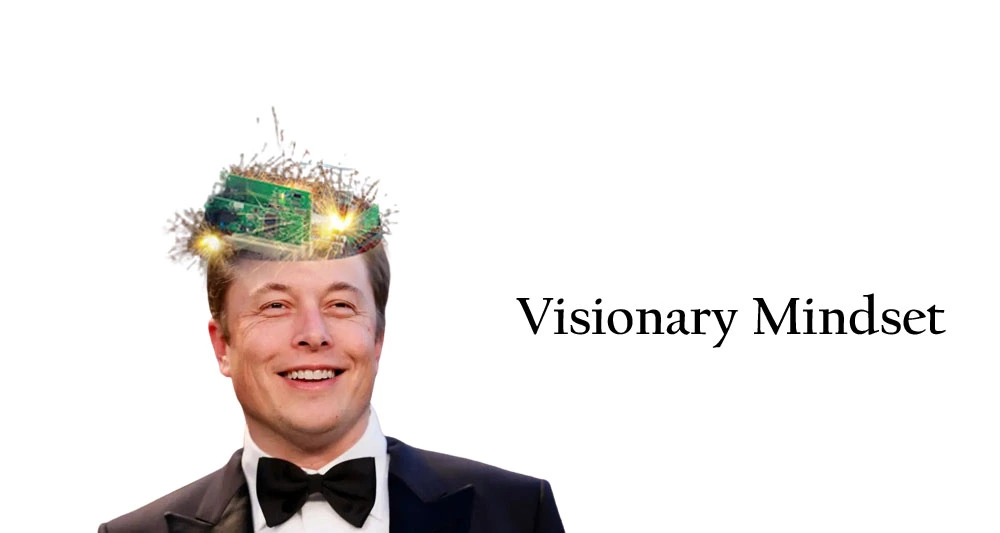
Elon Musk’s upbringing, education, and early influences
Elon Musk was raised in Pretoria after being born in South Africa in 1971. When Musk was young, his parents got divorced, and he spent most of his time with his father, Errol Musk, an electromechanical engineer. According to Elon Musk, his father had a significant impact on his interest in technology and engineering.
Prior to relocating to the United States at the age of 17, Musk attended Pretoria Boys High School. Prior to transferring to the University of Pennsylvania, where he received a bachelor’s degree in physics and economics, he briefly studied at Queen’s University in Canada.
Musk developed an interest in entrepreneurship while in college and launched a number of companies, including a web software firm called Zip2. After co-founding PayPal in 1999, which went on to become one of the most prosperous online payment companies in the world, he sold Zip2 in 1999 for around $300 million.
Musk has been impacted by his love of science fiction and his interest in space travel throughout his career. He has credited Robert Heinlein and Isaac Asimov’s writings as having a significant influence on his way of thinking and conducting business. The potential of renewable energy and environmentally friendly transportation, which have emerged as important topics in Musk’s work with companies like Tesla and The Boring Company, have also served as sources of inspiration.
How his background shaped his approach to problem-solving and innovation
Elon Musk’s upbringing has significantly influenced how he approaches invention and problem-solving. He was exposed to various viewpoints and ways of thinking while growing up in South Africa and then studying economics and physics in the United States, which he has incorporated into his business strategy.
Musk has the courage and money to tackle more ambitious initiatives thanks to his early entrepreneurial experience and his success with Zip2 and PayPal. He has stated that he views himself first and foremost as a problem-solver, and his broad training enables him to approach challenging issues from a variety of perspectives.
Musk’s fascination in science fiction and space travel has also shaped the way he views innovation. He regards outer space as the last unexplored territory and thinks that humans ought to be a “multi-planetary species.” His work with SpaceX, which aims to increase space travel accessibility and affordability, has been motivated by this objective.
Musk, on the other hand, is focused on environmentally friendly energy and transportation because he thinks that these are significant challenges that must be resolved if mankind is to have a sustainable future. This concentration is evident in his work with Tesla and The Boring Company, which is creating underground transportation infrastructure.
The importance of risk-taking and the ability to think outside the box
Elon Musk’s willingness to take chances and think creatively sets him different from other tech CEOs in several important ways. Even when ambitious ideas appear hazardous or unlikely to succeed, Musk has never been reluctant to pursue them.
For instance, many in the industry originally reacted with scepticism and mistrust when SpaceX announced their intention to make space travel more accessible and affordable. Musk, however, remained unfazed and persisted in making significant investments in the project, which eventually led to a number of successful launches and established SpaceX as one of the top players in the space sector.
Similar to this, Musk’s work with Tesla has been distinguished by a willingness to question accepted ideas about transportation and energy. Tesla’s electric vehicles were previously regarded as pricey and unfeasible, but Musk’s vision and tenacity have helped to reduce costs and increase the appeal of electric vehicles.
Because he believes that humanity must be prepared to make risky decisions in order to address the most pressing issues facing the world today, Musk is able to think outside the box and take calculated risks. He is prepared to take risks in order to find solutions since he views climate change, space travel, and sustainable transportation as pressing problems that demand creative solutions.
A Multidisciplinary Approach to Innovation
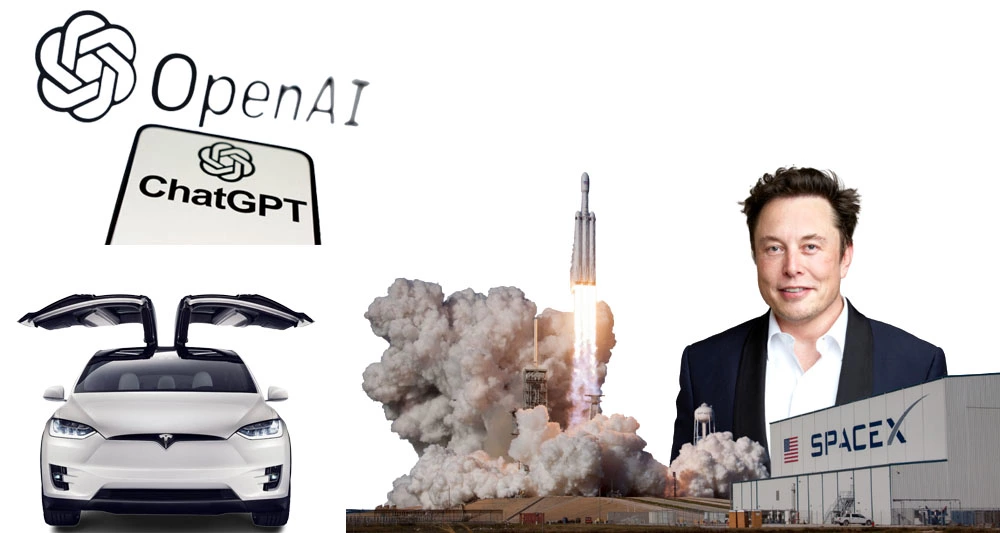
Musk’s diverse range of interests and expertise
Elon Musk differs from other tech CEOs in part because of his wide range of interests and specialties. Musk has worked on a range of projects and businesses over the course of his career. He has a background in physics, economics, and entrepreneurship.
Early success for Musk with Zip2 and PayPal provided him with the capital and reputation to explore more ambitious ideas. Since then, he has established a number of businesses, including SpaceX, Tesla, The Boring Company, Neuralink, and OpenAI, all of which are committed to finding innovative solutions and pushing the envelope of what is conceivable.
Musk’s enthusiasm for breaking new ground and solving significant challenges is shown in his interest in space travel and renewable energy. His work with SpaceX has contributed to the accessibility and affordability of space travel, whilst his work with Tesla is concentrated on the creation of electric vehicles and environmentally friendly energy sources.
In order to create underground transportation systems that could lessen traffic congestion in urban areas, Musk founded The Boring Company. This further demonstrates his interest in the infrastructure of transportation. Additionally, through his work with OpenAI and Neuralink, Musk has made investments in artificial intelligence and brain-computer interfaces.
How he combines knowledge from different fields to tackle complex problems
Elon Musk also stands out as wiser than other company CEOs because of his aptitude for combining knowledge from other domains to solve challenging problems. With a background in physics, economics, and entrepreneurship among other fields, Musk has been able to address issues in a variety of ways.
For instance, Musk needs to be knowledgeable in rocket physics, aerospace engineering, and logistics in order to work for SpaceX. Musk has created ground-breaking approaches to space travel, including reusable rockets and spaceships that can transport both goods and people, by fusing knowledge from these various fields.
Similarly, Musk’s work with Tesla requires expertise in electric car design, battery technology, and sustainable energy. By combining knowledge from these different areas, Musk has been able to develop electric cars that are both practical and affordable, as well as energy solutions that can be used in homes and businesses.
Musk’s ability to combine knowledge from different fields is also reflected in his approach to problem-solving. He has said that he likes to approach problems from a first principles perspective, which involves breaking down complex problems into their fundamental components and using basic principles to develop innovative solutions.
The benefits of having a multidisciplinary mindset for entrepreneurship
Elon Musk’s success as an innovator and businessman serves as a testament to the advantages of approaching complicated challenges from a multidisciplinary perspective. The following are some benefits of such a strategy:
1. Innovation: A diverse approach to solving complicated challenges can produce more creative answers. Entrepreneurs can produce solutions that would not have been feasible with a single-discipline approach by combining knowledge and expertise from other domains.
2. Versatility: A diverse attitude enables business owners to adjust to shifting conditions and pursue a range of initiatives. This adaptability can be especially useful in fast-paced fields like technology, where new trends and advancements appear frequently.
3. Collaboration: To create novel solutions, it’s frequently required for professionals from several fields to work together. Building interdisciplinary teams and collaborating with a wide range of specialists and stakeholders are both made simpler for entrepreneurs by having a multidisciplinary mentality.
4. Problem-solving: In order to address complex problems successfully, a multidisciplinary approach is frequently necessary. Entrepreneurs can discover fresh ideas and techniques to problem-solving as well as create more complete solutions by merging expertise from several sectors.
5. Future-proofing: By predicting and adjusting to new trends and technology, entrepreneurs may future-proof their companies by adopting a multidisciplinary approach. Entrepreneurs can spot fresh opportunities and stay one step ahead of the competition by keeping up with changes in a variety of industries.
A Long-Term Vision for the Future
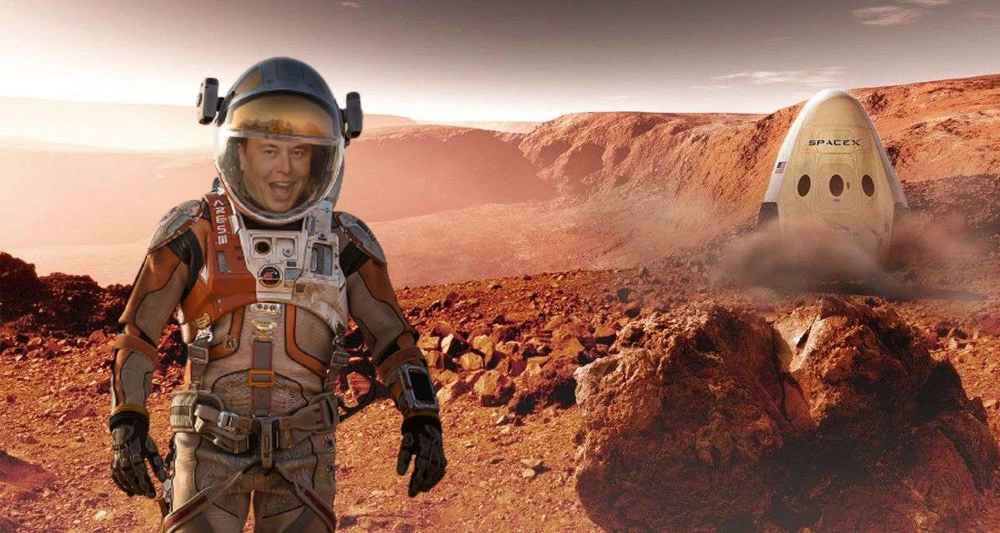
Musk’s focus on solving global problems and creating sustainable solutions
Another thing that sets Elon Musk distinct from other tech CEOs is his commitment on finding sustainable solutions to global problems. A significant portion of Musk’s career has been devoted to addressing some of the most important issues facing the globe, including transportation, space exploration, and climate change.
Sustainable energy transition is one of Musk’s top priorities. In order to hasten the adoption of electric vehicles, he started Tesla Motors in 2003. Since then, he has broadened his focus to include other renewable energy sources including solar energy. In order to encourage the switch to sustainable energy sources, Musk has also spoken in favour of a carbon tax and other legislative measures.
Musk’s work with SpaceX is another illustration of his dedication to finding solutions to world issues. He established SpaceX in 2002 with the intention of lowering the cost and increasing accessibility of space travel, which he believes is crucial for the long-term survival of civilization. SpaceX has made enormous strides in the field of rocket technology, including the creation of reusable rockets that could drastically lower the price of space travel.
Musk has also made a point of addressing the dangers that artificial intelligence (AI) poses. He has urged control of AI in order to keep it from becoming overly powerful or dangerous and has issued a dire warning that it may endanger humanity’s existence.
His ambition to create a human civilization on Mars and make humanity a multi-planetary species
Creating a human civilisation on Mars is one of Elon Musk’s most audacious plans to turn humanity into a multi-planet species. Musk thinks we need to evolve into a multi-planetary species and establish a stable presence on other worlds in order to assure the long-term survival of humanity.
In order to do this, Musk formed SpaceX and has made significant investments in the creation of cutting-edge rocket technology that can deliver people and supplies to Mars. By successfully launching the Falcon Heavy rocket and developing the Starship spacecraft, which can accommodate up to 100 passengers, SpaceX has already made considerable strides in this direction.
Musk envisions a self-sufficient society that is capable of producing its own food, water, and electricity on Mars. He has recommended that the colony be powered by geothermal and solar energy, as well as suggesting that it might someday develop into a city with millions of inhabitants.
Musk’s plans for a Martian colony are still in the early phases of development, but they have already generated a lot of enthusiasm and curiosity among the general public. It is considered by many to be a daring and forward-thinking strategy that might assure the long-term survival of humanity and spur fresh space exploration and innovation.
The role of a long-term vision in driving innovation and inspiring others
One illustration of the ability of a bold and exciting vision to spur innovation and inspire others is Elon Musk’s long-term goal of building a multi-planetary civilisation on Mars. Musk is able to inspire his teams to go beyond of the confines of the present and aim for discoveries that could have paradigm-shifting effects by setting daring targets that are decades or even centuries in the future.
The ability of a long-term vision to establish a feeling of direction and purpose that transcends the day-to-day difficulties of commercial or technological development is what gives it its power. Even when there is uncertainty about the way forward or it seems impossible to overcome the challenges, a compelling vision can motivate individuals to strive towards a common objective.
For Elon Musk, his idea of a multiplanetary civilization on Mars now serves as a compass that directs all of his endeavours. It has prompted him to make significant investments in cutting-edge rocket technology, create fresh sources of renewable energy, and promote laws that encourage space travel and colonisation.
The fact that Musk’s vision has encouraged many others to follow their own goals and desires may be even more significant. Musk has inspired a new generation of inventors and businesspeople by demonstrating what is possible when we aim high and work together to achieve a common objective.
A Track Record of Success
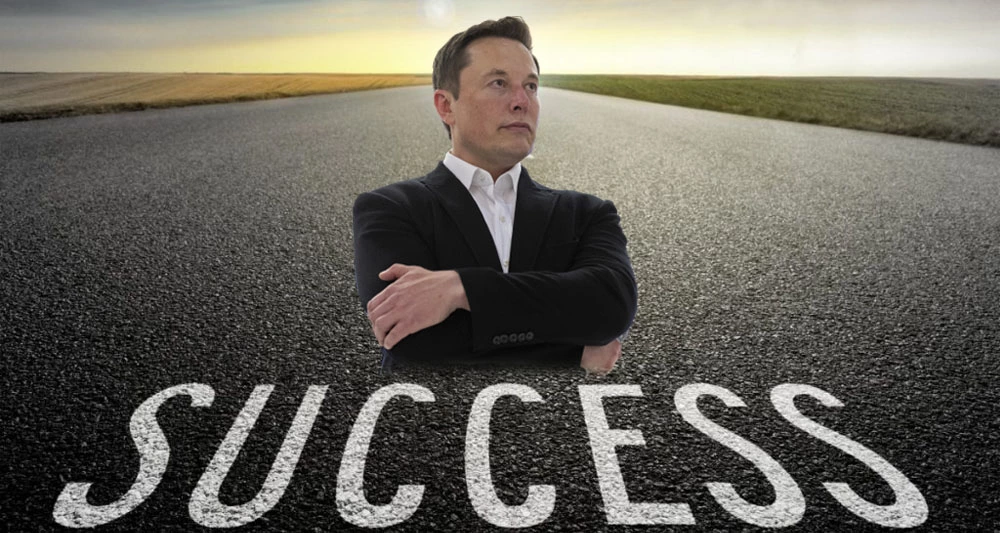
A review of Musk’s past achievements, including Tesla, SpaceX, and PayPal
Elon Musk has a long list of accomplishments that have had a big impact on a variety of industries. Here are just a few of his most impressive successes:
1. PayPal: Musk co-founded PayPal in the late 1990s, and it soon rose to prominence as one of the most extensively used payment methods on the internet. PayPal transformed how people transact online and opened the ground for the expansion of e-commerce.
2. Tesla: In 2004, Musk made significant investments in Tesla, a business that was working to produce electric vehicles in order to lessen reliance on fossil fuels and develop a more environmentally friendly transportation system. With a focus on innovation and cutting-edge technology, Tesla has grown to be one of the most successful and influential automobile businesses in the world under Musk’s leadership.
3. SpaceX: Musk established SpaceX in 2002 with the intention of lowering the cost and increasing the accessibility of space travel. The first privately funded spaceship to orbit the Earth and the first privately funded spacecraft to deliver supplies to the International Space Station are just a few of the significant accomplishments that SpaceX has made since its inception.
While these three accomplishments stand on their own, Musk has also made a significant impact in fields like artificial intelligence and renewable energy. Overall, Musk’s accomplishments show his dedication to utilise technology to address world issues and advance the future of humanity.
The lessons that other entrepreneurs can learn from Musk’s success
Elon Musk’s entrepreneurial success offers numerous insightful lessons that other businesspeople might take away. Here are some salient conclusions:
1. Accept risk-taking: Elon Musk has repeatedly shown that taking measured risks can result in big returns. Even when there was no promise of success, he was willing to put a significant sum of his personal money into his endeavours. Musk is an example of an entrepreneur that is willing to take chances and be fearless in their own endeavours.
2. Follow your long-term goals: Musk’s vision for a sustainable future and the colonisation of Mars has motivated both his businesses and his supporters. A long-term perspective may keep business owners motivated and help them stay focused on their objectives.
3. Build a multidisciplinary team: Musk’s success has been attributed in part to his ability to assemble specialists from several professions to tackle challenging issues. Entrepreneurs can use different viewpoints and knowledge to develop creative solutions by assembling a multidisciplinary team.
4. Focus on innovation and design: Musk’s businesses are renowned for their cutting-edge technologies and svelte aesthetics. Entrepreneurs can take inspiration from Musk’s emphasis on innovation and design and make these factors a priority in their own companies.
5. Do not be scared to disrupt: Musk’s businesses have done so in a number of industries, demonstrating that innovation may result from upending the established order. Entrepreneurs can follow Musk’s lead and be open to upending established sectors with novel concepts and strategies.
A Leadership Style that Inspires
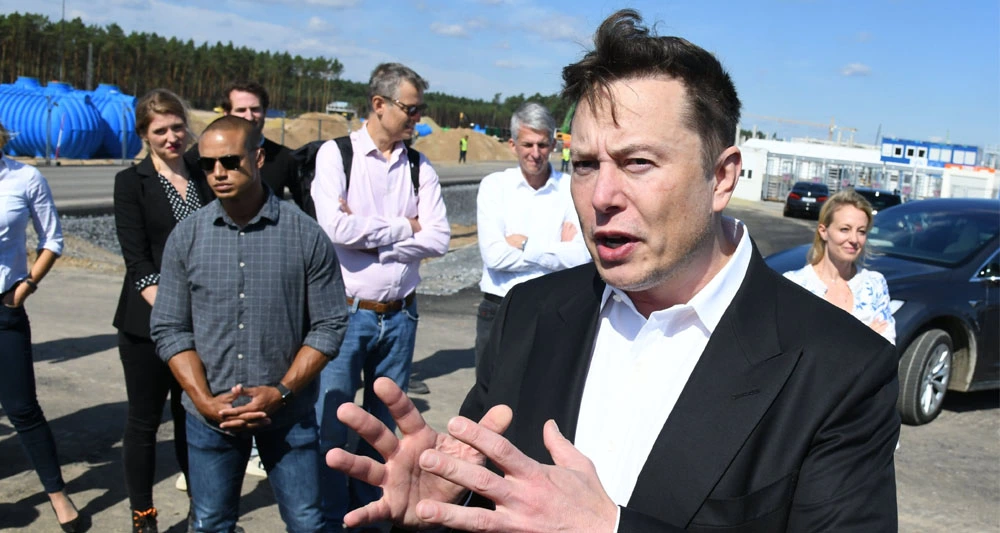
Musk’s ability to inspire and motivate his team
Elon Musk has a reputation for inspiring and motivating his employees to accomplish amazing things. Here are a few explanations on why Musk is so successful at running his businesses:
1. Leads by example: Musk sets an exemplary example by being actively involved in the day-to-day operations of his businesses and regularly working alongside his staff. Musk motivates his team members to work harder and be more dedicated to their tasks by setting an excellent example.
2. Conveys a clear vision: Elon Musk is renowned for his lofty objectives and long-term outlook. He provides his team members with a sense of purpose and direction by sharing this vision with them. This promotes a sense of purpose that is shared by everyone, which may be a strong motivator.
3. Encourages risk-taking and innovation: Musk promotes innovation and risk-taking because he himself is not scared to take them. He also exhorts his employees to do the same. He creates an environment where staff members feel empowered to take chances and pursue novel ideas by promoting an environment of creativity and experimentation.
4. Celebrates successes: Musk is quick to acknowledge the accomplishments of all of his teams, large and small. He improves morale and fosters a productive workplace by recognising his colleagues’ efforts and accomplishments.
5. High expectations: Musk has high standards for both himself and his staff, and he expects them to put in a lot of effort and do excellent work. Even though this occasionally presents difficulties, it also fosters a sense of urgency and a desire to succeed.
The importance of having a clear and compelling vision
For an entrepreneur to be successful, they must have a distinct and compelling vision. Here are a few causes for this:
1. Offers guidance: You and your team have a sense of purpose and direction when you have a clear vision. It enables you to maintain your attention on what matters while avoiding being sidetracked by less crucial chores.
2. Inspires your team: Your team members will work harder and be more dedicated to their projects when they are motivated by a compelling vision. It develops a sense of purpose that everyone shares, which may be a strong motivator.
3. Attracts investors and customers: A captivating vision can assist you in luring in customers and investors who share your beliefs and objectives. It demonstrates your long-term planning and dedication to reaching your objectives.
4. Helps you make decisions: Having a clear vision makes it simpler to make choices that will further your objectives. In order to determine whether an opportunity or danger will help you achieve your vision, you can assess it.
5. Allows you to adapt: Having a clear vision does not need you to adhere to a strict plan. It may be adaptable enough to take into account new knowledge and conditions that change. However, it gives you a framework for decision-making that aids in maintaining your attention on your long-term objectives.
The role of transparency, communication, and trust in leadership
Effective leadership requires communication, trust, and transparency among other things. This is why:
1. Transparency builds trust: Trust is developed when leaders are open and honest with their team members about their actions and judgements. It demonstrates the leader’s willingness to be forthright and sincere, which can increase team loyalty and respect.
2. Collaboration is facilitated by communication: Establishing a collaborative team culture requires effective communication. Effective communicators are more likely to promote candid discussion and helpful criticism, which can result in better decisions and greater team bonds.
3. Trust fosters a positive workplace culture: Employee engagement and motivation depend on a positive workplace culture. Team members are more likely to feel good about their work and be invested in the company’s success when they trust their leader.
4. Communication and transparency assist control expectations: When leaders are open and honest with their team members about their plans, it is easier to control expectations. This can lessen the likelihood of misunderstandings and team members becoming disappointed or irritated.
5. Trust leads to innovation: When team members have confidence in their boss, they are more willing to take chances and develop creative solutions to issues. This is a result of their sense of empowerment and support, which can boost their creativity and productivity.
A Focus on Customer Needs
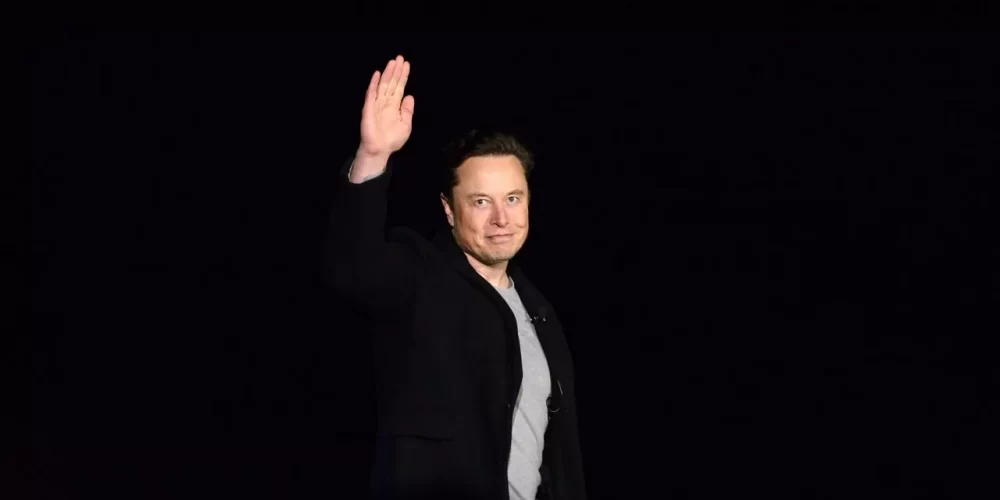
Musk’s commitment to making the world a better place
Elon Musk is steadfastly committed to improving the world through his efforts in a variety of sectors. He has proven his dedication in a number of ways:
1. Sustainability: Through his work with Tesla in particular, Musk has made sustainability a major concern of his. He has been a major proponent of electric vehicles and has fought to lower their price and increase their availability to the general public. He has also made investments in green energy technologies including solar energy and energy storage.
2. Space exploration: Musk envisions establishing a human civilization on Mars as a crucial step in safeguarding the future of humanity. He established SpaceX with the intention of lowering the cost and increasing the accessibility of space travel, and through a string of productive rocket launches and landings, he has achieved notable advancements in this direction.
3. Transportation: Through his work with Tesla and other initiatives like the Hyperloop, a high-speed transportation system, Musk has also placed a strong emphasis on enhancing transportation. He thinks that one crucial area where technology may significantly lower carbon emissions and enhance quality of life is in transportation.
4. Artificial intelligence (AI): Musk has criticised the possible risks of the technology outspokenly and asked for more regulation and control. Additionally, he founded a number of businesses dedicated to the creation of safe and useful AI.
5. Philanthropy: Musk has contributed significantly to a number of causes, such as disaster assistance, renewable energy, and education. Additionally, he pledged to give the majority of his wealth to charitable causes by signing the Giving Pledge.
How Musk’s approach to customer service sets him apart from other tech CEOs
Elon Musk’s approach to customer service sets him apart from other tech CEOs in several ways:
1. Quick and responsive: Musk is renowned for being incredibly quick to respond to consumer complaints and concerns. Customers frequently receive direct responses from him via social media or email, and he has a reputation for acting fast to address their complaints.
2. Personal touch: Musk frequently responds to client questions in a personal and sympathetic manner, which helps foster customer loyalty and trust. He has a history of apologising and accepting responsibility for mistakes, which can go a long way towards demonstrating to clients how much they are appreciated.
3. Focus on quality: Musk is dedicated to providing his consumers with high-quality goods and services. He has a reputation for acting quickly to fix quality problems or flaws and has stressed the significance of providing goods that meet or exceed customer expectations.
4. Innovative approaches: When it comes to customer service, Musk isn’t hesitant to innovate outside the box. In order to address problems or enhance performance, he has introduced novel solutions, such as providing over-the-air software upgrades, which can enhance the user experience.
5. Customer-centric approach: Musk prioritises the needs of the consumer over all else when providing customer service. He has emphasised the significance of taking customer feedback into account while developing new products in order to make sure that these satisfy customers’ wants and expectations.